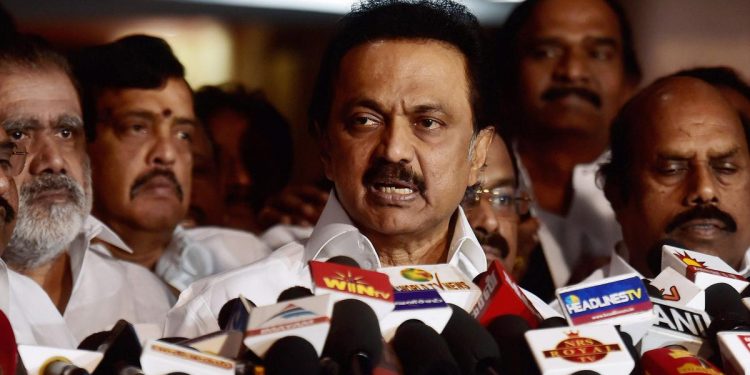Chennai: Chief Minister M.K. Stalin Tuesday hailed the Supreme Court’s ruling against Governor R.N. Ravi as a historic victory for Tamil Nadu and all state governments across India.
Speaking in the Tamil Nadu Legislative Assembly, CM Stalin said the verdict vindicated the state’s stand on legislative autonomy.
The judgment pertained to a dispute over several bills passed by the Tamil Nadu Assembly, which were withheld by the Governor without assent. The Supreme Court Tuesday ruled that the Governor’s action of reserving 10 re-adopted bills for the President’s consideration was “illegal and erroneous”.
The bench, comprising Justices J.B. Pardiwala and R. Mahadevan, stated that once the bills were passed again by the Assembly and represented to the Governor, he was constitutionally bound to grant assent and could not reserve them for the President unless there were substantial differences in content between the original and re-adopted versions.
The court noted that the Governor failed to act in good faith and held that the bills should be deemed to have received assent on the date they were re-submitted to him. The bench also made it clear that under Article 200 of the Constitution, the Governor does not have discretionary power to withhold assent and must act on the advice of the Chief Minister and the Council of Ministers.
CM Stalin said, “This ruling strengthens Tamil Nadu’s fight for autonomy and reinforces the Dravidian model, which upholds the principles of federalism and state self-governance.”
In a related matter, the Supreme Court also upheld internal reservations within the Scheduled Caste quota in Tamil Nadu, which CM Stalin described as another significant affirmation of the state’s progressive policies.
The court approved a 3 per cent internal reservation for the Arundhatiyar community within the existing 18 per cent SC quota, which the Chief Minister called a victory for social justice.
The Tamil Nadu government had earlier filed a writ petition in the Supreme Court, accusing Governor R.N. Ravi of acting like a “political rival” by returning 10 out of 12 bills and delaying assent without valid justification.
The court, during hearings, questioned the Governor’s prolonged inaction and observed that the bills had been pending since January 2020. It pointedly asked why the Governor waited until the matter reached the court before taking any action.
The bench also criticised the lack of communication from the Governor regarding any constitutional concerns he may have had with the bills. “If repugnancy was a concern, it should have been immediately communicated to the state government. How is the Assembly supposed to know what’s in the Governor’s mind?” the court asked.
IANS






































